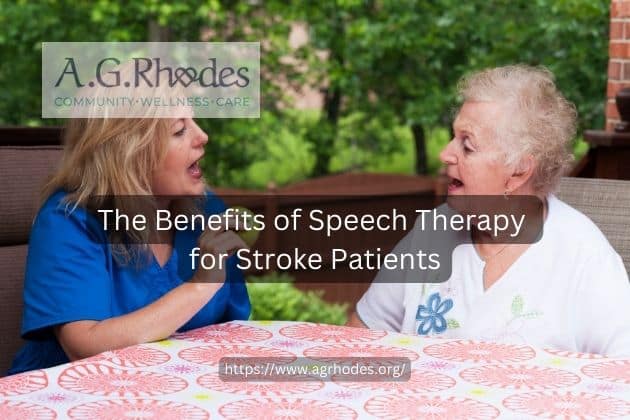
Stroke is a debilitating condition that can cause various physical and cognitive impairments. One of the most common consequences of stroke is speech impairment, which can negatively affect a person’s quality of life. Speech therapy is a proven treatment method for stroke patients that can improve their communication skills and restore their confidence. In this article, we will discuss the techniques and benefits of speech therapy for stroke patients.
Understanding Stroke and Speech Impairment
Before delving into speech therapy, it’s essential to understand what stroke is and how it can affect speech. A stroke occurs when blood flow to the brain is disrupted, leading to brain damage. This damage can manifest in different ways, depending on the location and severity of the stroke. One of the most common types of speech impairment caused by stroke is aphasia, which is a language disorder that affects a person’s ability to speak, read, write, and understand language.
The Role of Speech Therapy in Stroke Recovery
Speech therapy is an evidence-based treatment method that can help stroke patients improve their communication skills. Speech therapists, also known as speech-language pathologists, use various techniques and exercises to help patients regain their speech abilities. The goals of speech therapy for stroke patients include improving speech articulation, increasing vocabulary and sentence structure, and enhancing listening and comprehension skills.
Techniques and Exercises Used in Speech Therapy for Stroke Patients
Speech therapy for stroke patients can take different forms, depending on the patient’s specific needs and goals. Here are some of the most common techniques and exercises used in speech therapy for stroke patients:
Articulation Therapy
Articulation therapy is a type of speech therapy that focuses on improving the patient’s ability to pronounce words correctly. This therapy involves exercises that target the specific sounds that the patient has difficulty with, such as “s,” “sh,” or “th.”
Language Therapy
Language therapy is a type of speech therapy that focuses on improving the patient’s language skills. This therapy involves exercises that target different aspects of language, such as grammar, vocabulary, and sentence structure.
Cognitive-Communication Therapy
Cognitive-communication therapy is a type of speech therapy that focuses on improving the patient’s ability to process and understand language. This therapy involves exercises that target different cognitive skills, such as attention, memory, and problem-solving.
Augmentative and Alternative Communication (AAC)
AAC is a type of speech therapy that involves the use of devices or techniques to help patients communicate when they are unable to speak or write. These devices can include communication boards, speech-generating devices, or computer-based systems.
Benefits of Speech Therapy for Stroke Patients
Speech therapy for stroke patients can have many benefits, both physical and emotional. Here are some of the most significant benefits of speech therapy for stroke patients:
Improved Communication Skills
The most obvious benefit of speech therapy is that it can improve the patient’s ability to communicate. This can lead to better relationships with family and friends, improved job prospects, and an overall better quality of life.
Increased Confidence and Self-Esteem
Speech therapy can also help stroke patients regain their confidence and self-esteem. Being able to communicate effectively can give patients a sense of control over their lives and reduce feelings of frustration and isolation.
Enhanced Cognitive Functioning
Speech therapy can also improve cognitive functioning in stroke patients. By working on language skills, patients can improve their memory, attention, and problem-solving abilities.
Conclusion
Speech therapy is an essential treatment method for stroke patients with speech impairments. By using various techniques and exercises, speech therapists can help patients improve their communication skills, regain their confidence, and enhance their cognitive functioning. If you or someone you know has experienced a stroke and is struggling with speech, consider reaching out to a speech therapist for help.
Resources:
- https://www.cdc.gov/stroke/about.htm
- https://www.hopkinsmedicine.org/health/conditions-and-diseases/aphasia

